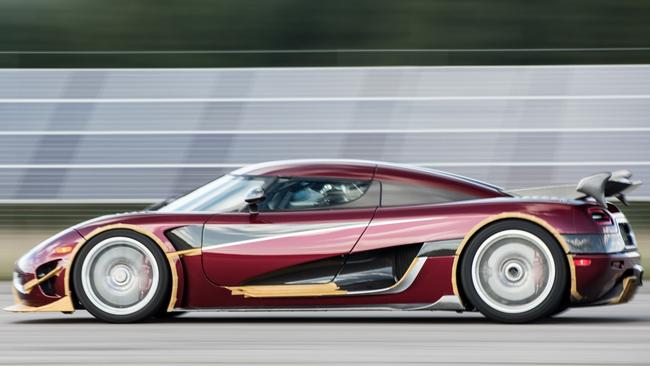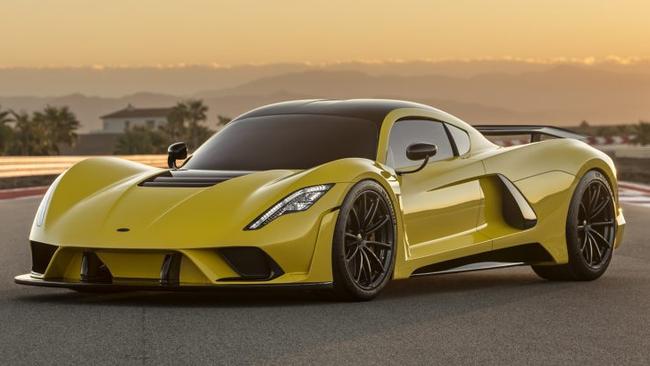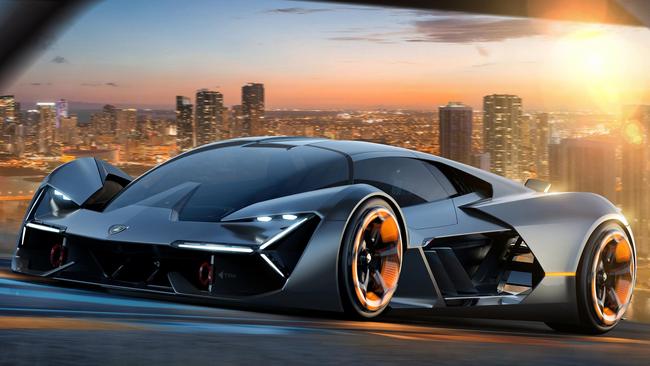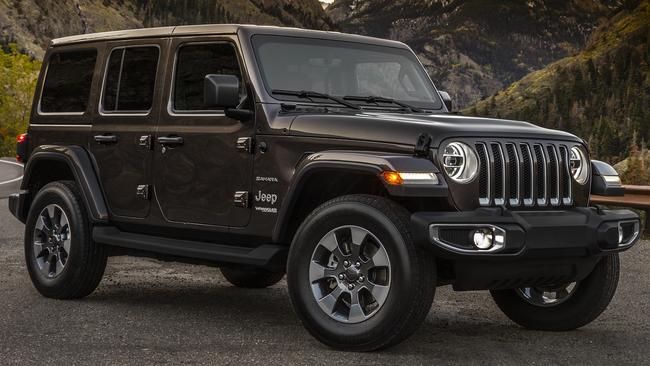Battle to produce the world’s fast car revs up with new entries
The title of world’s fastest car is being contested like never before with holder Bugatti being assailed on all sides.

Koenigsegg Agera RS
The title of world’s fastest car is being contested like never before, with holder Bugatti being assailed on all sides by low-volume hypercar brands that have vehicles in development or just entering production.
Swedish carmaker Koenigsegg had its Agera RS ready to go in Nevada at the weekend, hitting a maximum of 457km/h on one run and achieving an average of 447km/h over two legs. It’s awaiting official confirmation that it has snatched the record of 431km/h set by a Bugatti Veyron Super Sport in 2010.
Bugatti’s new Chiron hypercar has yet to set a top speed mark but Koenigsegg has already trumped it in another test. In August a Chiron completed a run from zero to 400km/h and back to standstill in 41.96 seconds. An Agera RS managed the exercise in 36.44s last month.
The Agera RS, powered by an upgraded version of the standard car’s twin-turbo 5.0-litre V8 with 1014kW of power, accelerated to 400km/h in less than 27s on its way to that goal. Koenigsegg factory driver Niklas Lilja was behind the wheel for both tests. Koenigsegg is making just 25 examples of the Agera RS with prices thought to be about $US2.1 million ($2.7m) apiece.
Hennessey Venom F5

Koenigsegg will struggle to retain its crown if other cars in the pipeline are capable of hitting their design targets. The latest to declare its hand is American tuner operation Hennessey, which unveiled the Venom F5 at the recent Specialty Equipment Market Association show in Las Vegas. Hennessey, known for extreme versions of performance cars from other brands, is designing and developing Venom F5 in-house with the goal of making “the absolute fastest road car on earth”. With a lightweight carbon fibre body and a specially developed twin-turbo V8 with more than 1190kW of power, Venom F5 will have a top speed of 301mph (484km/h) and be capable of reaching 300km/h in less than 10 seconds — faster than a Formula 1 car.
The company plans to build just 24 examples priced at $US1.6m each.
Lamborghini Terzo Millennio

Lamborghini has unveiled a far-out future vision for how a supercar may look in the generation after next. The Terzo Millennio, or Third Millennium, was designed in collaboration with the Massachusetts Institute of Technology and ditches the internal combustion engine in favour of electric power. Motors in each wheel are powered by electricity stored in super-capacitors, which Lamborghini already employs in its flagship Aventador. The project is exploring the possibility of using the car’s carbon fibre body structure for energy storage as well. It even may be able to monitor itself for structural damage and self-repair. The cab-forward design features extensive channels through the body for effective aerodynamics and it looks ideal for high speeds, although no hints are given about the potential performance. Lamborghini says the virtual cockpit allows a driver to be taken around a racetrack by a virtual expert before having a go themselves.
Jeep Wrangler

Jeep has released images of the replacement for its hardcore off-roader, the Wrangler (bottom), which has been on sale since 2006. The design evolves the venerable shape with minimal changes, although a new roof design and thicker pillars were required to cope with modern safety standards. The cabin benefits from the latest electronic control system from the Fiat Chrysler Group. It is expected to offer four and six-cylinder petrol and diesel engines, driving all four wheels via a six-speed manual or eight-speed automatic transmission. Production of four-door Unlimited models begins in the US this month, with soft-top versions in December and other variants, such as the two-door, beginning next year.
British car buyers are abandoning diesels in droves, highlighting a trend across Europe following the Volkswagen dieselgate affair. Figures from Britain’s Society of Motor Manufacturers and Traders show demand for diesel vehicles slumped 30 per cent last month compared with the year before. Year to date, Britons have bought 166,000 fewer diesels than in 2016 in a vehicle market slowing overall thanks to concerns about Brexit. Sales in Britain plummeted 12 per cent last month and are running 5 per cent behind last year.



To join the conversation, please log in. Don't have an account? Register
Join the conversation, you are commenting as Logout